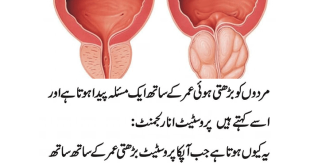Embarking on a journey to lose weight and reduce belly fat is a commendable decision that can lead to improved health and increased confidence. While quick fixes may offer temporary results, sustainable weight loss is achieved through consistent lifestyle changes. This guide provides practical strategies to help you achieve your goals and maintain them long-term.
1. Understanding Belly Fat and Its Implications
Belly fat, particularly visceral fat, surrounds internal organs and poses significant health risks. Excess abdominal fat is associated with increased risks of heart disease, type 2 diabetes, and other chronic conditions. Addressing belly fat is not only about aesthetics but also about improving overall health.
2. Embracing a Balanced Diet
A nutritious diet is the cornerstone of weight loss and fat reduction.
-
Incorporate Whole Foods: Focus on whole grains, lean proteins, fruits, and vegetables.
-
Limit Processed Foods: Reduce intake of processed and sugary foods, which contribute to weight gain.
-
Mindful Eating: Practice mindful eating by paying attention to hunger cues and avoiding overeating.
3. Regular Physical Activity
Exercise plays a pivotal role in burning calories and reducing belly fat.
-
Cardiovascular Exercises: Activities like walking, running, and cycling increase heart rate and burn calories.
-
Strength Training: Building muscle through resistance training boosts metabolism and aids in fat loss.
-
Consistency: Aim for at least 150 minutes of moderate-intensity exercise per week.
4. Prioritizing Sleep and Stress Management
Sleep and stress levels significantly impact weight management.
-
Sleep: Aim for 7-9 hours of quality sleep per night to regulate hunger hormones.
-
Stress Reduction: Incorporate stress-reducing activities like meditation, yoga, or deep breathing exercises.
5. Hydration and Its Role in Weight Loss
Adequate hydration supports overall health and can aid in weight loss.
-
Water Intake: Drinking water before meals can promote satiety and reduce calorie consumption.
-
Limit Sugary Beverages: Replace high-calorie drinks with water or herbal teas.
6. Setting Realistic Goals and Monitoring Progress
Tracking your journey helps maintain motivation and identify areas for improvement.
-
Use a Journal: Record meals, workouts, and emotions to understand patterns.
-
Set Achievable Goals: Establish short-term objectives that lead to long-term success.
7. Seeking Professional Guidance
Consulting healthcare professionals can provide personalized strategies.
-
Nutritionists: Offer tailored meal plans and dietary advice.
-
Personal Trainers: Design exercise programs aligned with your goals.
8. Utilizing Technology and Support Systems
Leveraging tools and community support enhances accountability.
-
Apps: Use fitness and nutrition apps to track progress.
-
Support Groups: Join communities with similar goals for encouragement and shared experiences.
9. Incorporate High-Intensity Interval Training (HIIT)
High-Intensity Interval Training (HIIT) is a powerful exercise strategy that alternates short bursts of intense activity with periods of rest or lower-intensity exercise. This approach has been shown to effectively burn calories and reduce belly fat.
Benefits of HIIT:
-
Efficient Workouts: HIIT sessions are typically shorter in duration but high in intensity, making them time-efficient.
-
Increased Calorie Burn: The intense nature of HIIT can elevate your metabolism, leading to increased calorie burn even after the workout.
-
Fat Reduction: Regular HIIT workouts can contribute to overall fat loss, including visceral fat.
Example HIIT Routine:
-
Warm-up: 5 minutes of light cardio (e.g., jogging or jumping jacks).
-
Workout: Alternate 30 seconds of high-intensity exercise (e.g., sprinting, burpees) with 30 seconds of rest or low-intensity activity. Repeat for 15-20 minutes.
-
Cool-down: 5 minutes of stretching or light cardio.
Incorporating HIIT into your fitness routine 2-3 times per week can enhance fat loss and improve cardiovascular health.
10. Reduce Refined Carbohydrate Intake
Refined carbohydrates, such as white bread, pastries, and sugary snacks, can contribute to weight gain and increased belly fat. These foods often lack essential nutrients and can cause spikes in blood sugar levels.Health
Strategies to Reduce Refined Carbs:
-
Choose Whole Grains: Opt for whole-grain alternatives like brown rice, quinoa, and whole wheat bread.
-
Increase Fiber Intake: Foods high in fiber can promote satiety and help regulate blood sugar levels.
-
Limit Sugary Beverages: Replace sodas and sweetened drinks with water, herbal teas, or infused water.
By minimizing refined carbohydrate consumption, you can support your weight loss goals and reduce abdominal fat.
11. Practice Mindful Eating
Mindful eating involves paying full attention to the eating experience, recognizing hunger and fullness cues, and savoring each bite. This practice can prevent overeating and promote healthier food choices.
Tips for Mindful Eating:
-
Eat Without Distractions: Avoid eating while watching TV or using electronic devices.
-
Chew Thoroughly: Take time to chew food properly, which aids digestion and allows you to enjoy the flavors.
-
Listen to Your Body: Eat when you’re hungry and stop when you’re comfortably full.
Incorporating mindful eating habits can lead to better portion control and a more enjoyable dining experience.
12. Limit Alcohol Consumption
Excessive alcohol intake can contribute to weight gain, particularly around the abdominal area. Alcoholic beverages are often high in empty calories and can stimulate appetite, leading to increased food consumption.
Strategies to Limit Alcohol:
-
Set Limits: Establish a weekly limit for alcoholic drinks.
-
Choose Lower-Calorie Options: Opt for light beers or wine spritzers instead of high-calorie cocktails.
-
Alternate with Water: Drink water between alcoholic beverages to stay hydrated and reduce overall intake.
By moderating alcohol consumption, you can decrease calorie intake and support your weight loss efforts.
13. Increase Daily Physical Activity
In addition to structured workouts, increasing your overall daily movement can aid in weight loss and belly fat reduction.
Ways to Stay Active Throughout the Day:
-
Take Short Walks: Incorporate brief walks during breaks or after meals.
-
Use Stairs: Choose stairs over elevators whenever possible.
-
Stand More: Use a standing desk or take standing breaks to reduce sedentary time.
These small changes can accumulate over time, contributing to increased calorie expenditure and improved health.
14. Ensure Adequate Sleep
Quality sleep is essential for weight management and overall well-being. Lack of sleep can disrupt hormones that regulate hunger and appetite, leading to increased food intake.
Tips for Better Sleep:
-
Establish a Routine: Go to bed and wake up at consistent times each day.
-
Create a Sleep-Friendly Environment: Keep your bedroom cool, dark, and quiet.
-
Limit Screen Time: Avoid electronic devices before bedtime to promote better sleep quality.Forbes
Aim for 7-9 hours of sleep per night to support your weight loss goals and overall health.
15. Manage Stress Effectively
Chronic stress can lead to hormonal imbalances that promote fat storage, particularly in the abdominal area. Implementing stress-reduction techniques can aid in weight management.
-
Practice Relaxation Techniques: Engage in activities like meditation, deep breathing, or yoga.
-
Stay Connected: Maintain social connections to provide emotional support.
-
Engage in Hobbies: Participate in enjoyable activities to divert attention from stressors.
By managing stress effectively, you can prevent stress-related weight gain and improve your overall well-being.
Conclusion
Achieving and maintaining weight loss, particularly reducing belly fat, requires a multifaceted approach involving diet, exercise, sleep, and stress management. By implementing these lifestyle changes, you can embark on a path toward improved health and well-being.







